Find the surface area.
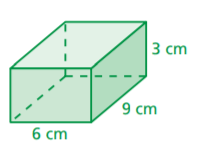
198 cm2
Find the volume.
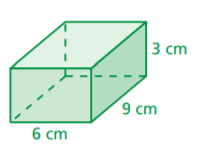
162 cm3
What shape is formed when this cross section is cut through a cone? The cross section is parallel to the base.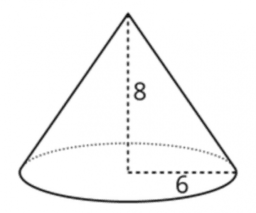
Circle
What is the name of this solid? How many vertices does it have?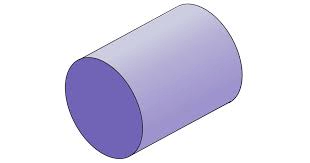
Cylinder and NO vertices
Find the area of a square with a side length of 9 feet.
81 feet2
Find the surface area.
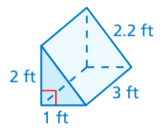
17.6 ft2
Find the volume.
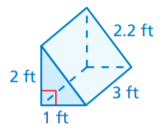
3 ft3
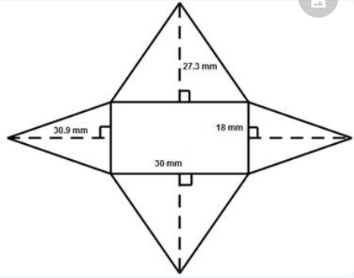 What 3D solid would be formed by this net?
What 3D solid would be formed by this net?
Rectangular Pyramid
Name the 3D solid below and tell how many faces it has total.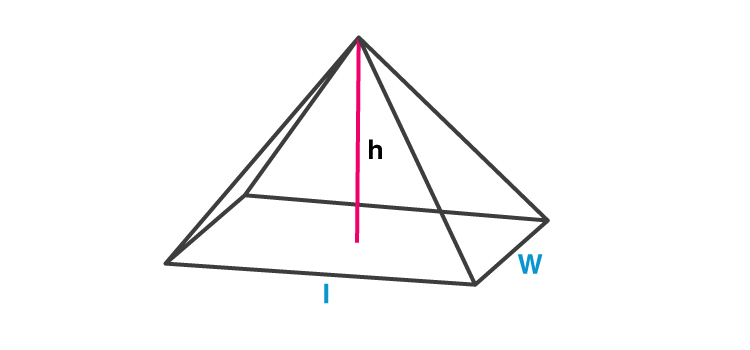
Rectangular Pyramid and 5 faces total
Find the area of the trapezoid that has the following dimensions: h = 6 inches
b1 = (2x - 5) inches & b2 = (8x + 17) inches
A= (30x + 36) in2
Find the surface area of the following cylinder. Leave your answer in exact form. 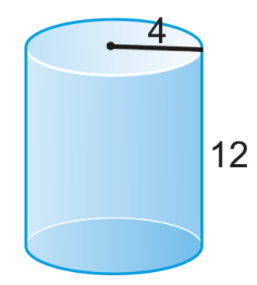
SA=128pi units^2
Find the volume of the cylinder. Leave your answer in terms of pi (exact form).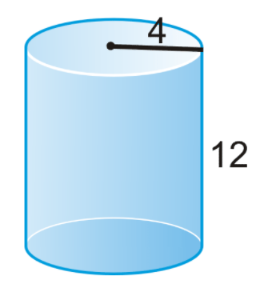
V=192pi units^3
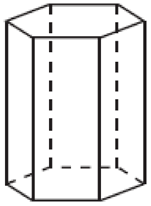 If a cross section is drawn parallel to the base of this prism, what shape will be created?
If a cross section is drawn parallel to the base of this prism, what shape will be created?
Hexagon
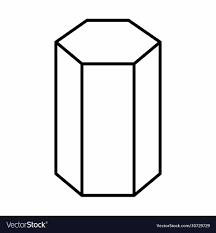 Name the 3D solid and tell how many lateral faces it has.
Name the 3D solid and tell how many lateral faces it has.
hexagonal prism and 6 lateral faces
Find the circumference of a circle whose area is 144pi cm2
C =
24pi cm
Find the surface area of the following figure. Round to the nearest tenth.
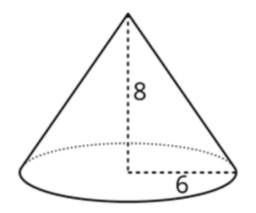
SA = 301.6 units2
Find the volume of the cone below. Round to the nearest tenth. 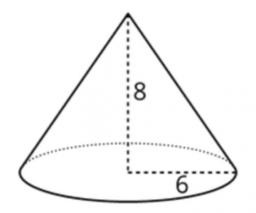
V=301.6 units3
What 3D solid would be formed by this net?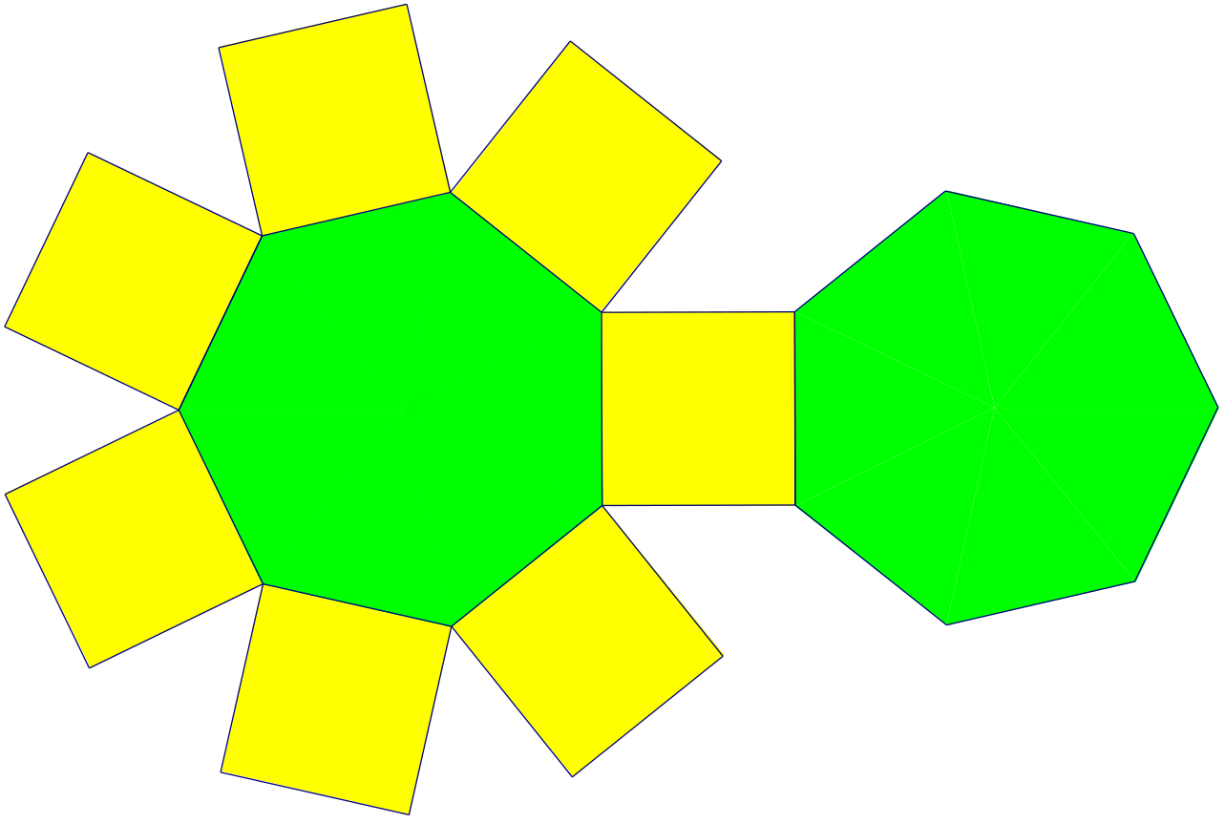
Heptagonal Prism

What is the name of this 3D solid and how many bases does it have?
Triangular Prism and 2 bases (the triangles)
Find the area of the kite shown below. Round to the nearest tenth.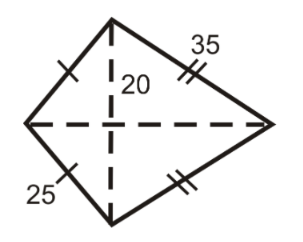
A=874.4 uinits2
Find the surface area of the regular hexagonal pyramid. Round to the nearest hundredth. 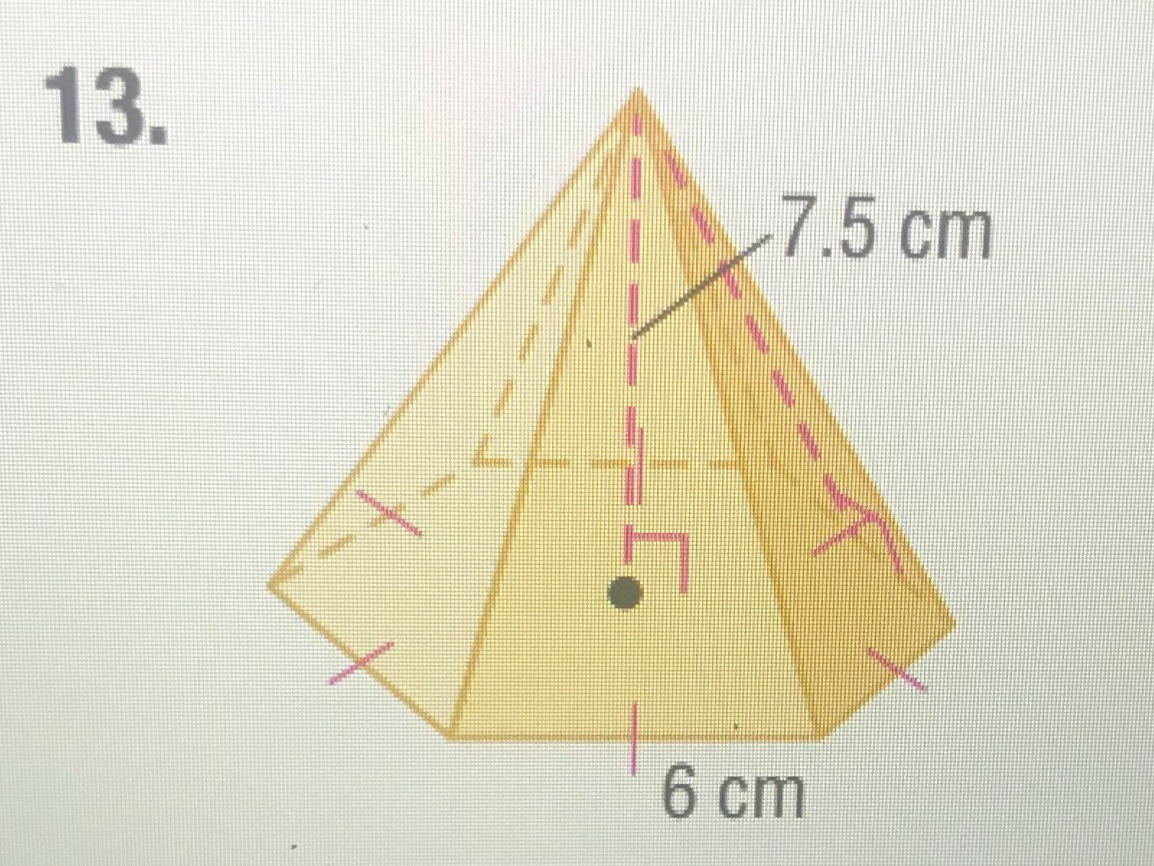
SA = 257.77 cm2
Find the volume of the regular hexagonal pyramid. Round to the nearest hundredth. 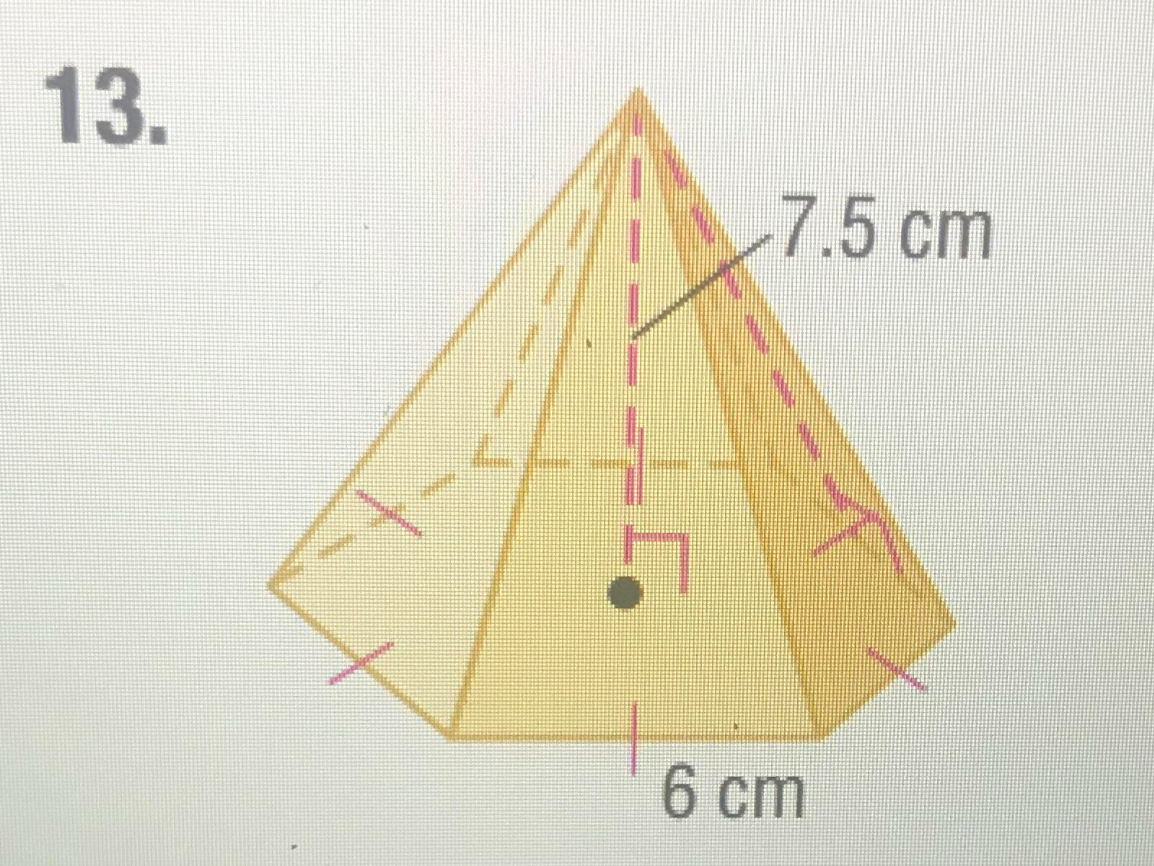
V=233.83 cm3
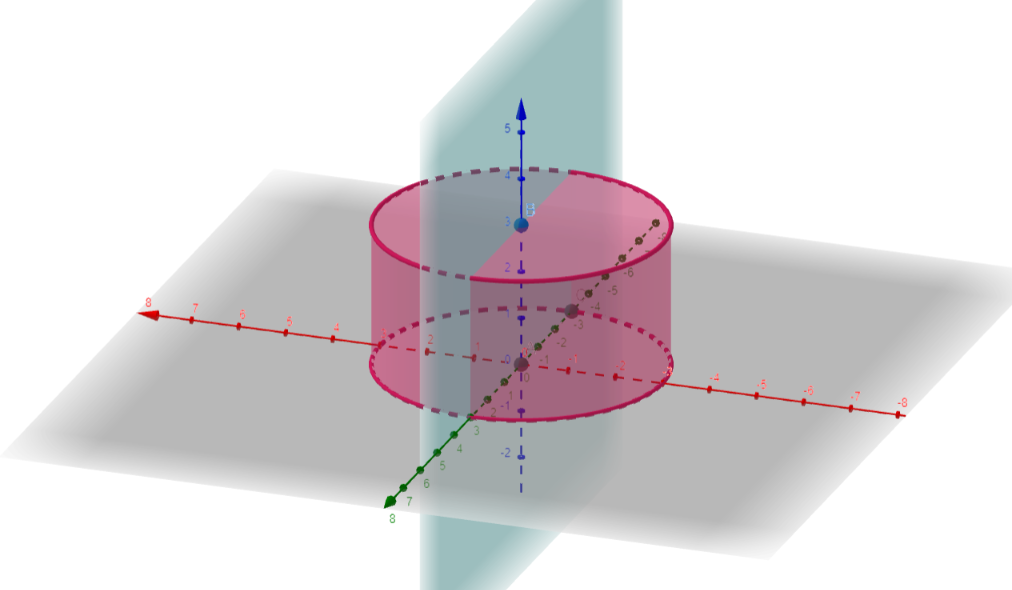 What shape will the teal cross section create that is being cut through the red cylinder?
What shape will the teal cross section create that is being cut through the red cylinder?
rectangle
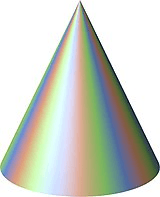 What is the name of this 3D solid and how many edges does it have?
What is the name of this 3D solid and how many edges does it have?
cone and no edges
Find the area of a regular octagon with a side length of 10 cm. Round to the nearest hundredth.
A = 482.84 cm2